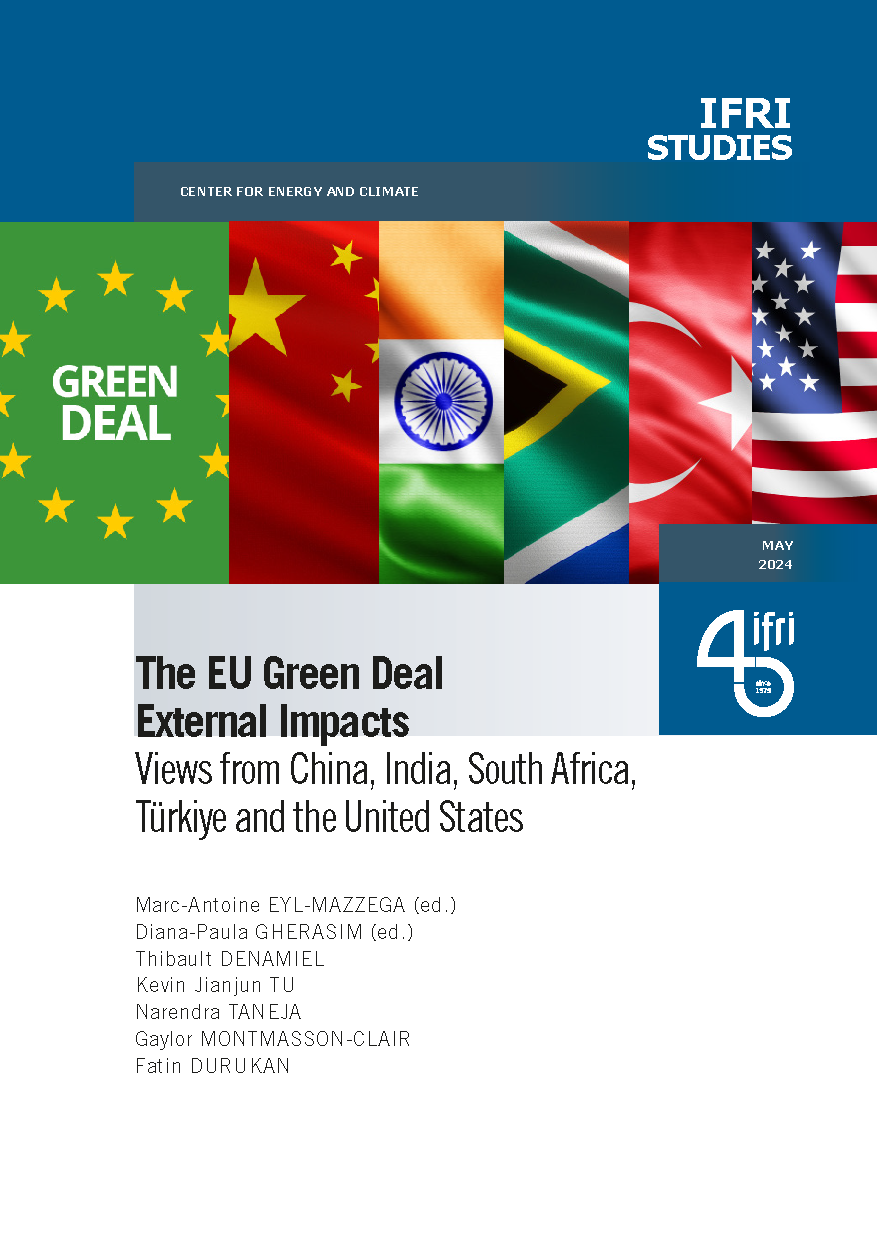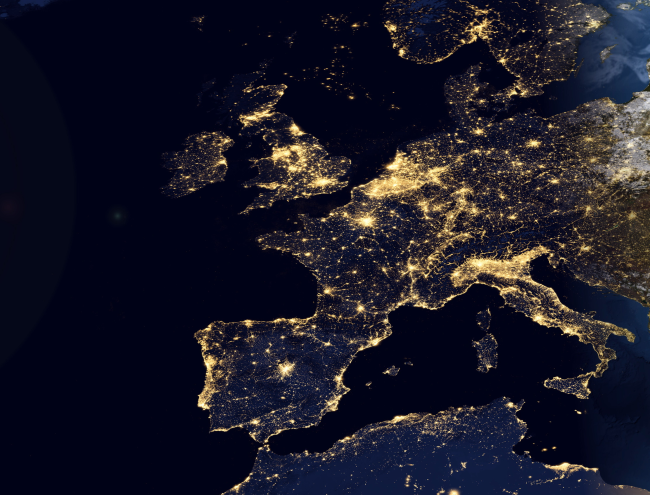The EU Green Deal External Impacts: Views from China, India, South Africa, Türkiye and the United States

Ahead of June 2024 European elections and against the backdrop of growing geopolitical and geoeconomic frictions, if not tensions, between the EU and some of its largest trade partners, not least based on the external impacts of the European Green Deal (EGD), Ifri chose to collect views and analyses from leading experts from China, India, South Africa, Türkiye and the United States of America (US) on how they assess bilateral relations in the field of energy and climate, and what issues and opportunities they envisage going forward.

A key highlight from these contributions is that the EGD matters as it is taken seriously by most trading partners. While it is a source of frictions, if not tensions, the European Union (EU) actually has an influence on some of the policy dynamics in these countries. Also, the issues of economic security and industrial policy have now become pivotal in the discussions on energy and climate policies, which tends to reinforce further the geopolitical dimension of the EU energy transition. As EU’s policies have a growing external impact, and as EU’s energy transition process is increasingly affected by policies put in place in the rest of the world, the next European political cycle should put a robust external energy and climate strategy among its priorities, be it towards the neighborhood as well as larger trade partners.

Available in:
Regions and themes
ISBN / ISSN
Share
Download the full analysis
This page contains only a summary of our work. If you would like to have access to all the information from our research on the subject, you can download the full version in PDF format.
The EU Green Deal External Impacts: Views from China, India, South Africa, Türkiye and the United States
Related centers and programs
Discover our other research centers and programsFind out more
Discover all our analysesBrazil One Year Away from the October 2026 General Elections
Brazil’s general elections will be held on October 4, 2026, to elect the president, vice-president, members of the National Congress, governors, deputy governors and state legislative assemblies. For the presidential and gubernatorial elections, a second round will be held on October 25 if no candidate obtains a majority of the votes in the first round.
COP30: An Inflection Point for Climate Action and Governance
The 30th Conference of the Parties (COP30), opening in Belém, Brazil, on November 10th 2025, convenes at a perilous moment.
The Strategic Dimension of Skills in the Clean Industrial Deal
In the competitiveness and energy transition battles, the European Union (EU) must master a determinant factor: skills.
The Energy Transition Faces Geopolitical Challenges. How Can Ideological Divides Be Overcome?
President Trump’s positions and policies, combined with record coal consumption and booming global electricity demand, geo-economic confrontation, and widespread concerns about energy security, are changing the game when it comes to understanding realistic decarbonization trajectories. The war in Europe is intensifying competition between defense and transition budgets. This is also the case elsewhere in the world.















